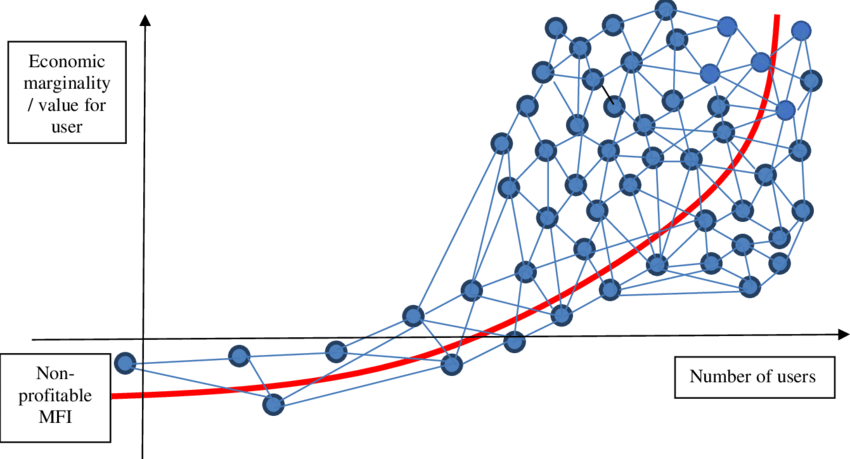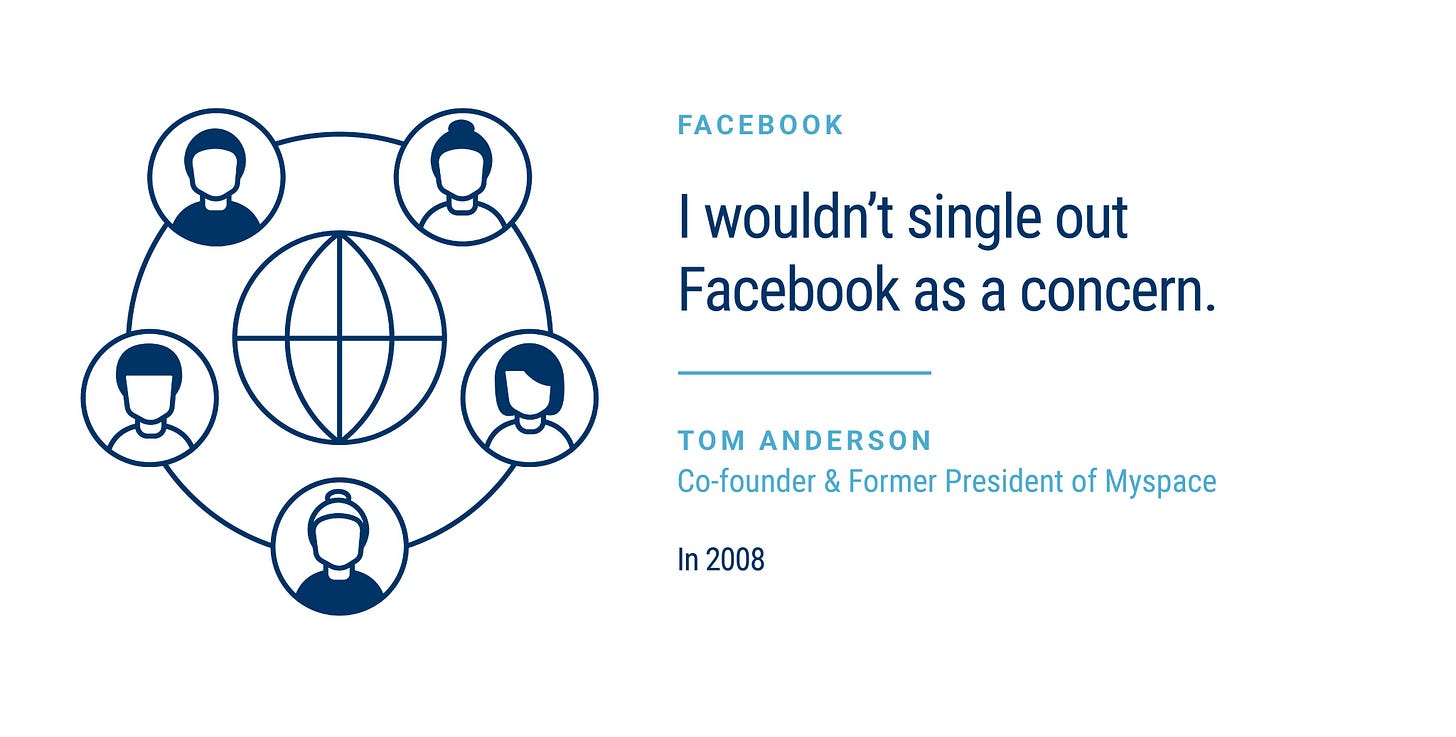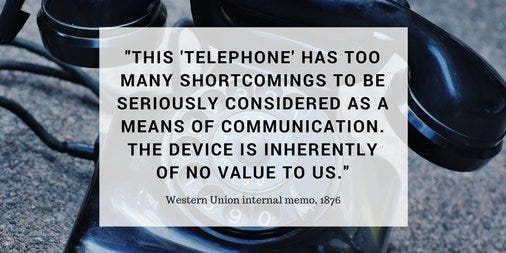On weak vs strong network effects, temporary vs sustainable network effects, and first-mover advantages
How network effects work and why Bitcoin's first-mover advantage is insufficient to hide behind in the long run.
The term "network effect" is often brought up in crypto to explain why a certain crypto will never be surpassed by an incumbent solution. These are lazy arguments, a way to try and dismiss competition that has been used many times in the past, with predictable outcomes.
Bitcoin enthusiasts often claim Bitcoin has an unassailable network effect. Everyone should "get some just in case it catches on", while being told how "there are only 21 million Bitcoin" and how "you don't want to be the last to convert to Bitcoin".
These are what I would call weak network effects, and I struggle to call it even that. None of these arguments are based on describing a network, they are based on describing an investment. You could replace Bitcoin with Beanie Babies or Bernie Madoff Securities shares in the above quotes, and it would work just as well.
Regardless, these weak network effects do have an impact. People see the price going up, and expect the price to continue going up. It's human psychology, and it's why "Number go up" is such an important philosophy in Bitcoin.
For what it’s worth, it’s also why Bernie Madoff’s ponzi scheme worked for so long. When the numbers are going up, people are happy to turn a blind eye to fundamentals and to what is going on behind the scenes.
In a weak network effect, new users only see benefits when they in turn convince new users. If a new user buys at $60k, they want another new user to "discover" Bitcoin so they buy Bitcoin at $61k.
The issue with such an argument is that it's effectively built on quicksand. It works, as long as you can keep finding new people who believe in it. However - what should they believe in exactly? What are the fundamentals?
This brings us to strong network effects. In a strong network effect, it becomes increasingly attractive for people to join the network because it provides value to them instantly. The best example is a telephone network. Any user joining this network immediately profits from the prior network effects, they can call anyone who also joined this network.
Another example is PayPal. With more people using it, it becomes more valuable. There is no need for you to convince others to join the network for you to profit from the network - you can just use it with the current users and it will provide you utility.
Bitcoin has limited strong network effects. With more people joining the network, you can theoretically transact with more people. However, total capacity is limited. More people using it means transactions slow down and become more expensive.
Even worse, at some point capacity reaches its limit. No more than 7 transactions can be done on the Bitcoin network per second. Enthusiasts point to the Lightning Network, but this is by no means a solution.

In other words, while Bitcoin has a limited strong network effect, its network effect is not sustainable. At some point a hard limit on users is reached, and way before that point users will already experience degraded performance when additional users try to join the network.
For a true strong network effect, additional users joining the network would mean the network becoming more valuable, without adversely impacting current users.
When it comes to a medium of exchange and store of value, in an ideal case this would mean all users retain instant transactions with $0 fees.
For a sustainable network effect, such a network effect would need to not be limited to a group of first movers. The network would need to be scalable, offering value to present and future users. It needs to be usable, to offer utility.
This does not mean price going up and limited supply (weak network effect) is a bad thing. It becomes a bad thing when “number go up” is all you can point to, rather than how the specific asset is fundamentally better than alternatives.
Many Bitcoin enthusiasts currently exist in a sort of quantum state. On the one hand they’ll state Bitcoin is valuable as a store of value. On the other hand, they’ll point towards the Lightning Network to describe how it makes Bitcoin usable as a medium of exchange.
What does it mean for Bitcoin when there is an alternative that is fundamentally better as a store of value and is a fantastic medium of exchange without needing to resort to flawed solutions like the Lightning Network?
When Facebook showed up, MySpace didn’t see it as the main concern. MySpace had the users, they had the brand name. They had the network effect, and they were developing their offerings to stay ahead of their competitors.
Is MySpace like Bitcoin? No, MySpace arguably did *more* to stay ahead of its competition than Bitcoin did. Blockbuster might be an even better example of a prior mover being outcompeted far faster than anyone imagined at the time.
Blockbuster didn’t change its business model much when Netflix started growing. There was no need. They had thousands of stores, were opening new ones daily, and everyone had one close by enough that a service where DVDs were mailed to your home seemed unattractive.
As a final example – what use could anyone have for a telephone? We have telegrams, they’re plenty fast and have a far bigger network effect!
As we now know, current users, a store in every city and a worldwide network of telegram receivers were not as big a moat as was thought.
A network effect works until something that is 10x or 100x better arrives. In the case of Bitcoin, such a 10x or 100x improvement would have mean a radically improved store of value and medium of exchange proposition.
What could be improved about Bitcoin’s store of value properties? I’ve written about this before on this blog, and would suggest the article for a deep dive (On crypto as a store of value, Bitcoin's incentives, and the long-term future of crypto).
In short, it could be a better store of value through becoming ever more decentralized (therefore more secure), through being eco-friendly, and through an underlying usecase. The underlying usecase is theoretically that it’s a medium of exchange, so let’s lay out the flaws there. Longer article on it here: Creating the theoretical best possible money.
In short, 10 minutes for a transaction, having fees on a transaction and having a max throughput of 7 transactions per second are factors where orders of magnitudes improvements are possible.
As I lay out in the linked articles, I believe a specific cryptocurrency (Nano) already solves these shortcomings and offers a 100x improvement.
However, the broader point is that Bitcoin’s network effect is weak and unsustainable in the long run, there is much room for improvement, and that we have countless examples of such a vulnerable first mover being dethroned far faster than anyone thought possible.
If you’re in Bitcoin, or interested in crypto in general, learn from history. Don’t blindly follow the asset whose price has gone up in the past, but look into fundamentals and look into what might happen in the long run.
You’re in the position to know about the next Netflix early and might even already have come across it. Don’t get stuck holding Blockbuster.









